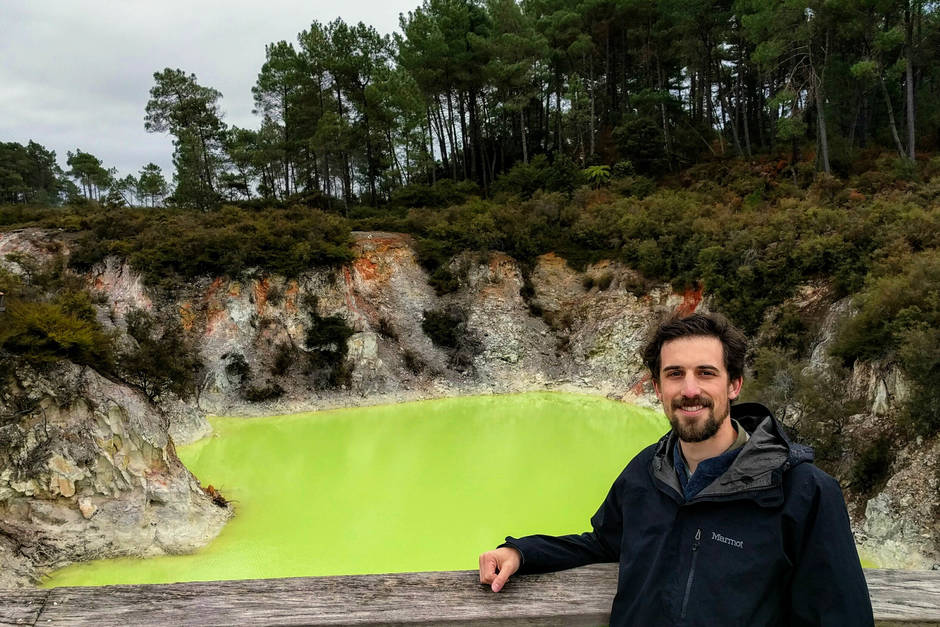Riley Newman, USA
Second year ISE student conducting thesis research in New Zealand
Name: Riley Newman
Age: 25
Hometown: Palmer, Alaska, USA
Academic Background: B.Sc. in Geophysics & Physics, University of Oregon, USA
Major & Class: Sustainable Energy, Class of 2018
Location of thesis research: Auckland, New Zealand
How did you discover your thesis opportunity?
I found this opportunity primarily through our program director, Juliet Newson. I had been discussing what aspects of geothermal energy to focus my studies on and generally about the state of the geothermal industry. Juliet encouraged me to build on my geophysics background by moving towards reservoir modelling and offered to introduce me to her colleagues at University of Auckland.
What motivated you to travel and study in Auckland, New Zealand?
The University of Auckland has some great resources for research and training in the geothermal field and have been at the forefront of geothermal reservoir modelling and reservoir engineering research. After learning about them, I jumped at the opportunity to learn from these experts.
What thesis research are you conducting?
My thesis project will most likely entail using numerical modelling to create simulations of the heat and fluid flow found deep beneath the Reykjanes Peninsula in Iceland. Ideally, data from the IDDP-2 well, the deepest cased geothermal well in Iceland, will be used to construct the model. The challenging aspect of the project is the supercritical fluid conditions found at depth within the well. In order to model these conditions, I will be using a supercritical Equation of State developed at the University of Auckland.
What do you hope to accomplish?
I hope to learn more about supercritical fluid conditions and the deep roots of geothermal systems like Reykjanes. Supercritical fluids contain a significantly higher energy content then two phase or saturated steam traditional used for geothermal heat and power production. Understanding more about these conditions in the subsurface is of great interest to me and many experts in the geothermal industry.
What are you most excited for during your time there?
I am excited to become much better at modelling geothermal reservoirs and running simulations and production models. I am, however, equally if not more excited for the chance to explore the beautiful country of New Zealand and compare the geothermal industry there to the Icelandic power stations we visit during our studies here at ISE. I am hoping to meet some of the leading experts in reservoir engineering and make connections with other researchers. Also I'd like to go to a New Zealand All Blacks match and maybe give surfing a try!
What do you expect will be your biggest challenges?
I expect the biggest challenge will be creating a steady state model of the near well-bore conditions with the existence of supercritical fluids. Supercritical fluids are complex and require more variables to accurately describe, thus I expect that it will be a challenge to create a stable model that is consistent with the data from IDDP-2.
How will your research abroad compliment the rest of your studies with ISE?
I think that this opportunity allows me to delve a bit deeper into reservoir modelling and to build off of what I learned from my courses here at ISE. My studies at ISE provided me with a good general understanding of geothermal systems and several other renewable energy generation types, while this thesis project will give me a chance to go further into certain aspects of geothermal energy that were not the focus of my studies here at ISE.

